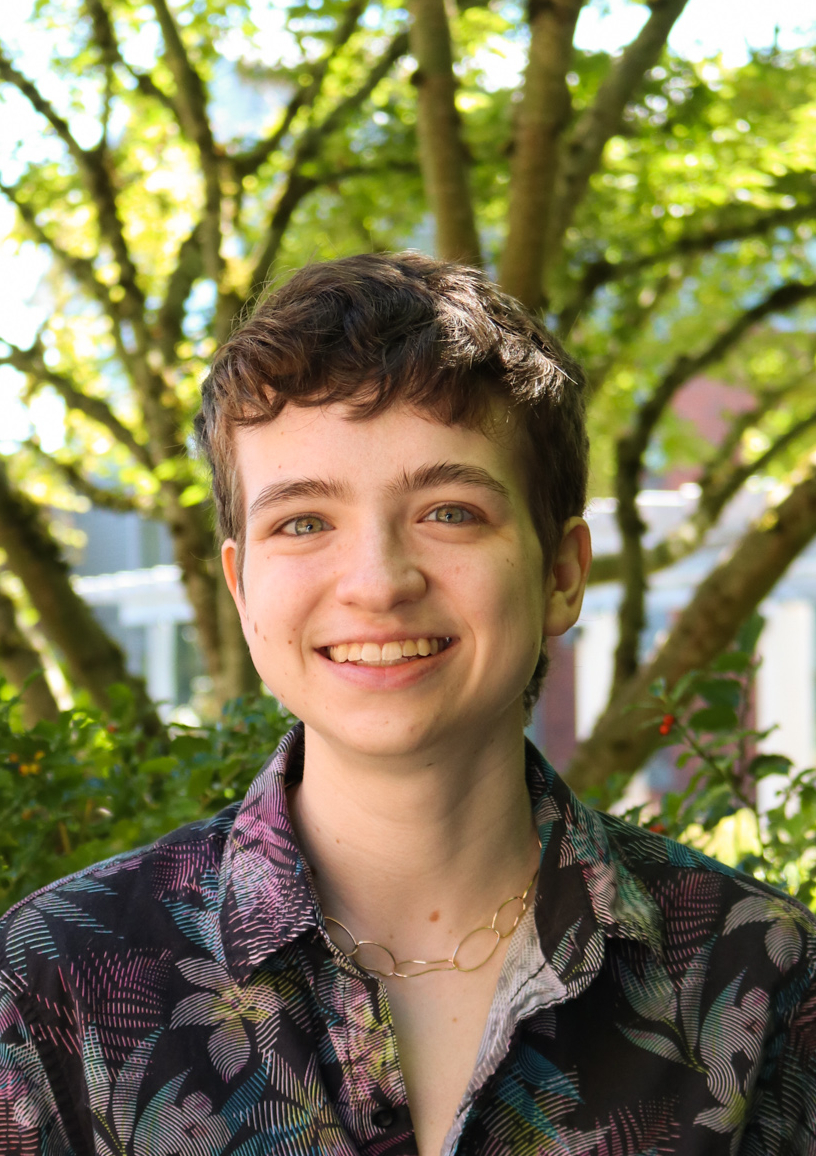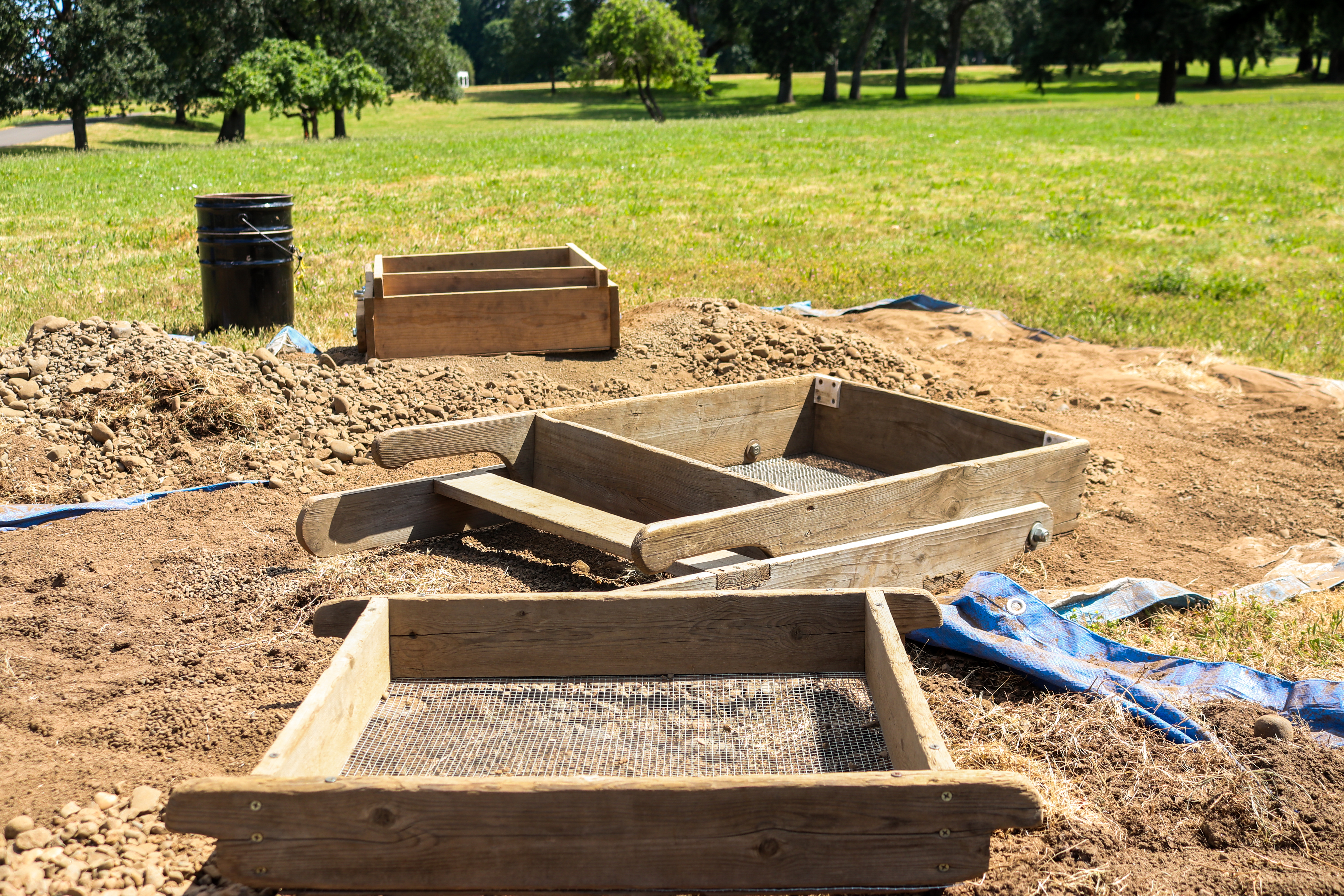This summer, WSU Vancouver and Portland State University undergraduate and graduate students are out in the heat of the sun, getting their hands dirty with soil to excavate the Earth for archaeological remnants. The Fort Vancouver Public Archaeology Field School functions as both a class and provides professional field work – allowing students to gain practical experience when it comes to improving their archaeology skills.
The field school is located in and around Fort Vancouver, a historical epicenter of Clark County. This iconic landmark portrays only a small window of knowledge in the vast timeline of the area – so discerning between multiple land-occupations by Indigenous peoples and colonial settlers is a major part of the student archeologists’ job. Not only is the recent history of Fort Vancouver culturally significant, the stories of pre-contact Indigenous life are just as influential too. This multi-layered history provides students with a plethora of significant archaeological finds, while allowing them to play a part in documenting and maintaining the cultural importance of the entire area.
“There’s definitely been a recent effort at this park specifically, and as a whole in the National Park Service, to highlight the fact that everywhere there is a national park. … Indigenous people have been and are on this land, and that community and that presence and [hundreds of cultures] … we are interested in the entire history of the area.” – Cameron Blumhardt
Colin Grier, a professor of anthropology at WSU Vancouver and one of the coordinators at the Fort Vancouver Field School, says this program is a crucial training opportunity for students wishing to pursue a future career in archaeology.
“The field school in general is to train students intensively in the field, and in the archaeological methods that they spend a lot of time in the classroom learning and reading about, so it’s hands-on. … [They] figure out how to record data and do the actual field skills,” Grier said.
Some of the skills students learn include mapping and survey work, where they succeed in determining locations of archaeological points of interest. Students also work directly in excavation units, one-by-one meter squares, and measure everything found in those units relative to one another. By analyzing the stratigraphy, the layers of sedimentary and archaeological deposits, archaeologists are able to piece together a much larger timeline of the land.
Evidenced by their progress, this is tedious work, and requires a great deal of patience and determination. Nathan Stewart-Otto, a senior anthropology major at WSU Vancouver, shares how essential it is that this work is done precisely.

“Being an archaeologist, by excavating stuff we are destroying it. So, one of the most important parts is that we document where everything is, and what the stratigraphy was. … We have iPads where we build things out and draw pictures … here’s where this rock was, here’s where that was,” Stewart-Otto said.
This year, the field school is primarily focused on researching two school houses built by the Hudson’s Bay Company during the mid-19th century. These school houses are particularly interesting, as students are exploring their role in education and assimilation of Indigenous peoples in the area.
“When it comes to schoolhouses, there were a lot of the European people who came here that wanted the Indigenous people to assimilate to their culture rather than adapting to meet Indigenous people where they were. … It’s interesting to see what they were teaching kids and what was prioritized,” Stewart-Otto said.
Cameron Blumhardt, a WSU Vancouver archaeology graduate student and instructor at the field school, says Indigenous history and culture are at the forefront of these archaeologists’ minds.
“There’s definitely been a recent effort at this park specifically, and as a whole in the National Park Service, to highlight the fact that everywhere there is a national park. … Indigenous people have been and are on this land, and that community and that presence and [hundreds of cultures] … we are interested in the entire history of the area,” Blumhardt said.

Students have already had luck finding artifacts in their excavations. Some of the artifacts discovered this summer so far include fragments of slate, pieces of American and British brick, bits of ceramic stoneware and glass bottles, coal, nails and even (possibly) an Indigenous flint-knapped glass piece. Kaeli Stephens, a senior anthropology major at WSU Vancouver, says this site is ripe for archaeological investigation.
“I’ve found so many nails and a bit of ceramic, there’s just so much site here, so anywhere we look, we are going to find stuff,” Stephens said.
Along with training in the field, students receive classroom and lab education. The field school is also open to the public, so students have the opportunity to engage with members of their community while working – families will often walk up to the site and ask questions. By offering the public an up close view of the archaeologists working in real time, the field school not only promotes learning new information about the land’s history, but brings everyone closer together.
Ryan Davis, a graduate student at WSU Vancouver, points out how special it is to share this experience with residents of the Clark County community.
“It has been cool. We have a chance to educate the public about a historical site that most of them are familiar with, since it’s Fort Vancouver. It’s great to be able to educate people about their own local history,” Davis said.
The Fort Vancouver Public Archaeology Field School is running Tuesday through Saturday, 8 a.m. to 4 p.m., until July 30. The public is encouraged to visit the site and talk with students and instructors to learn more about their archaeological mission up close.


Sawyer is a senior studying anthropology at WSU Vancouver.
